Funny League of Legends Names 2017
Kled, Xayah, Illaoi, Kayn. These are all words League players have heard, read, and maybe even shouted… but where did they come from?
Narrative writers are the primary people tasked with giving League's champions their names. It's a process that starts on day one, and it involves a lotta research, namestorming, and rejection—from both the narrative writers themselves, the champion team, and localization. But in the end, there's guaranteed to be only one name left standing.
Story Sketches and Terrible Temp Names
Naming really begins once the general direction for a champion's art, fantasy, and personality are decided. "You're always thinking about the name, or putting off thinking about the name," says narrative writer Michael "CoolRadius" McCarthy. Even when it temporarily evades thought, considering names becomes unavoidable once it's time to start working on story sketches. Story sketches are the narrative version of concept art—writers create short stories about the new champion to explore and define their personality.
"We'll try putting some names into the story sketch just to see how it feels," says Odin "WAAAARGHbobo" Shafer. "Does it work at all? Or is it just weird?"
Sharing these story sketches with the rest of the team can get tricky: What do you call a champion who doesn't have a name? One thing writers try to avoid—both in story sketches and beyond—is giving the champion a temporary name because sometimes it becomes permanent. "Temp names have a tendency to take over," says Ariel "Thermal Kitten" Lawrence. "People will become so attached to it that it becomes impossible for them to let go."
Some techniques writers use to avoid naming champions too early include:
- Give them a temp name no one can pronounce : WAAAARGHbobo often uses Aztec names in story sketches because almost nobody on the team can pronounce them. "I'll use something like Xllih, and people will come up to me like, 'How do you say this?' And I'm like, 'Exactly.'"
- Give them a god-awful temp name : "I try to create a working name that's so ridiculous that nobody will want to pick it," says Matthew "FauxSchizzle" Dunn. "If I do it well, everyone will be like, 'Please, we really need a new name.'" For example, Aurelion Sol's was "Heaven's Coil."
- Stick with the name being used for gameplay design : This method can be convenient, but oftentimes that name ends up sticking around. "It has a lot of influence on their personality and frequently turns into their title," says Thermal Kitten. "For example, I referred to Taliyah as 'Stoneweaver' for a long time, and that's her title now."
Setting Goals
Before brainstorming names, narrative writers sit down and decide on the goals. There are some universal rules that apply to most names, such as that names should be pretty easy to say (Illaoi was an exception). But in addition to those general guidelines, there are usually three to five champion-specific goals, listed in order of importance.
For example, the goals for Camille's name were:
- Evokes aristocratic eccentricity
- Should give a picture of a proper Piltovan lady
- Should be attractive sounding, but not beautiful sounding
- Distinctly feminine
- Can be shortened to a nickname if long
These goals help narrative writers and the rest of the champion team judge whether the potential names are a good fit. "Sometimes we'll share names with the team, and everyone will be all-in on a name, but one person objects with passion, 'My sister's ex-boyfriend was a jerk and he was name Xeraaggherimer! No way! Pick a new one," says CoolRadius. "This is why having the goals agreed upon ahead of time is so important—it gives us a better way to measure whether the name is a good fit for the champion."
There are also some general considerations that apply to all champion names, including:
- What's the most abbreviated version of the name, and does that version still meet the goals?
- Is it easy to pronounce in most of the languages we localize to? A good test for this one is to imagine shoutcasters yelling it.
- Is it pronounced how it looks? Otherwise, it's going to be a constant struggle of correcting people (VEYgar/VEIgar, CassIOpeia/CassiopEIA). Although, there is a workaround for this one: Almost all of the newer champions say their name in-game. Examples: "I am Illaoi, and I'm here to test you," or, "Hi, I'm Zoe!"
- Does it look interesting and feel nice to say?
- Are there any other champions with names that sound similar? This is generally something to avoid because each champion should be unique. Plus, it gets confusing.
"N" is for Namestorm
Once the goals are set, narrative writers come up with a list of potential names. The number of names that end up on that list depends on the champion and who the writer is, but it's usually around 100-200. Sometimes the original list can have over 500 names, but that's usually only when spelling variations are included.
Baby name books and websites are often a good place to start, but the names that make it on the list usually don't come directly from a book. "One of the goals for champion names is for them to stand out and be unique to League's universe," says WAAAARGHbobo. "Something like 'Becky' doesn't really work." (Yes, Caitlyn exists… League and Riot were a little different back then.)
"Illaoi" was one of the names where early exploration started with referencing naming databases, but none of her potential names were taken from these sources.
Sometimes naming champions starts with research. "I tend to read books that will enhance my understanding and help me get invested in what their world is like," says FauxSchizzle. "For Ornn, I read a lot about volcanoes and Norse mythology." Research can also mean tracking down the origin of a name. "If there's a name I like but I'm not sure what spelling I want to use, I might track back the language thread to its root in Latin or Arabic and see how to incorporate it," says Thermal Kitten. "That helps me create a giant list that I'll then narrow down."
Another approach to naming champions is to dive deep into the naming conventions of the region they're from. "The rules for the region, if they're written down at all, are intentionally vague because languages are pretty flexible," says WAAAARGHbobo. As a general rule, Targonian names sound very Hellenic (Greek or Roman) in both syllables and meaning. Void names are ancient Shuriman in origin (which is separate from modern Shuriman) and usually contain two parts separated by an apostrophe. Yordle names tend to have double letters, sound friendly, and are pretty simple—except for Heimerdinger.
One other starting point for namestorming is to look at the list of League champions in alphabetical order and identify which first letters are "missing," or almost missing, from the roster. The goal here is to create a name that both fits the champion and starts with one of those underrepresented letters. "Creating restrictions like this can help get the creativity flowing, even if you don't go in that direction," says CoolRadius.
Oftentimes, the final name doesn't fill in a letter gap, which is partially because the letters themselves carry weight. For example:
- "There's a reason why 'I' doesn't have many names. It's an exotic-sounding letter. It doesn't evoke 'Yordle.'" –CoolRadius
- "' K ' feels punchy and aggressive, which is what we wanted for Kayn. It also might be the reason there are so many 'K' champs in general." –CoolRadius
- "' R ' feels very appropriate for someone like Rakan. He's confident and suave, like a rockstar, and his top three names all started with 'R.' I don't know why it's true, but other names didn't feel as suave." –WAAAARGHbobo
There are also letters which writers actively try to avoid:
- "' Q ' is problematic. In general, Asia will pronounce it one way, and Europe will pronounce it in a very different way." –WAAAARGHbobo
- "' R ' and ' L ' can also be problematic because they're difficult to pronounce for some regions. Being aware of when you're making a name harder to pronounce, and for what percentage of players, is important." –WAAAARGHbobo
What Happens Next?
The writers cut down their list to about 25-100 names. If there's still a lot of them, they'll often bold their personal "top 10." Then it's time to send them off to the rest of the champion team for thoughts and feels… and there are usually a lot of thoughts and feels. "Everyone has an opinion about names, which is why it's so important to try to capture the team's goals ahead of time," says FauxSchizzle.
People on the champion team will share which names they like and which ones they don't. Sometimes, they can agree on the top contenders directly from that list. Other times, not so much. "You'll come up with a bunch of names that you think work, and you'll do a bunch of research, but sometimes, none of them feel right," says FauxSchizzle. If that happens, writers usually look at the names people liked the most, try to find what they have in common, and then use that to come up with a new list of names.
If everyone can agree on a top 10-ish, then it's time to send them off to localization. Rioters in other regions will look at the names and tell the team whether any of them mean something terrible (or just plain weird) in other languages. Each name either gets a yes, a maybe, or an ABSOLUTELY NOT.
"Yes" names are good to go—nothing weird happening there. "Maybe" names are not offensive, but they're just kind of strange. For example, Camille sounded a lot like camel in a couple languages, and one of Rakan's alternative names meant "hamster bottle." Thermal Kitten says, "Those are the times you have to decide, 'Is this offensive or not? And for how many players? Does the way the name fits the champion outweigh any "maybe" concerns?'"
The "absolutely nots" are reserved for names that translate into swear words, slurs, and other profanity. "Sometimes, you'll have this name you really like, and then it turns out it means balls," says FauxSchizzle.
That is not a hypothetical example.
Xayah's name was originally "Xaya." The name made it through the normal localization process, but the team later found out it's the medical word for testicles in Azerbaijani, a language spoken in the country Azerbaijan. "I ran 'Xaya' through an Google image search, and sure enough, there was a formal diagram," says FauxSchizzle. "I was like, 'Well… this isn't ideal.'" Xaya was changed to "Xayah," and all was good in the world.
Nowadays it's now much more common to run the top names through multiple types of Google searches.
The Final Call
Localization can sometimes cut the number of options down to only two or three, and usually at this point, there are only a few contenders left anyways. When it comes to making the final decision, the best case scenario is for everyone on the team to just agree on which name is the best fit. This doesn't always happen. "The DNA group, which includes the gameplay designer, narrative writer, and concept artist, have the strongest voice for which name we go with," says WAAAARGHbobo. "Although personally, once we're down to the top 10, I'm happy with any of them."
Usually the rest of the team can be persuaded to rally their support behind one name. "If there's ever a lot of disagreement, which is rare, the team will turn to you and say, 'We trust you as the writer. What do you think?'" says FauxSchizzle. "Which is great, but then you're like, 'Oh, gosh, uh… that one?' And then you run away."
Here's a collection of names that didn't make the cut (and why), along with the original goals for each name. If you want to go deeper, click here to download WAAAARGHbobo's complete, unedited namestorm for Jhin or FauxSchizzle's original, uncut namestorms for Ornn .
Camille
GoalsEvokes aristocratic eccentricity; should give a picture of a proper Piltovan lady; should be attractive sounding but not beautiful sounding; distinctly feminine; can be shortened to a nickname if long
| 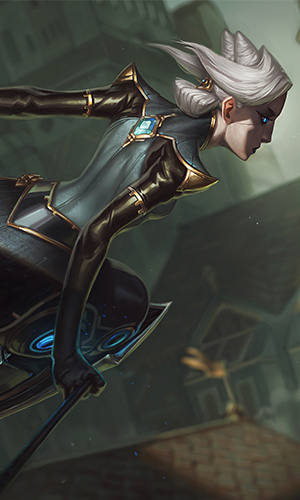 |
Taliyah
GoalsFeminine sounding; something a nomadic family would name a daughter they cherish; evoke a nomadic, tribal, or desert culture; is naturally short (2 syllables-ish), but a longer name is ok if it has a built-in nickname
| 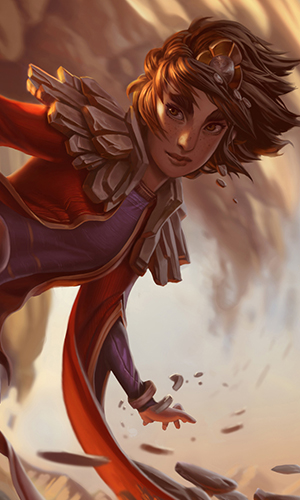 |
Xayah
GoalsElegant; exotic but simple; original, but with Ionian elements; "Duo" names have to sound nice together (Xayah and Rakan)
| 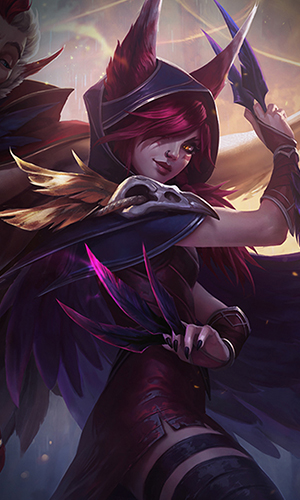 |
Kayn
GoalsPowerful, with a slight hint at mysterious beginnings; congruent to Zed/Shen in sound and look (Ionian); quick and pithy; one to three punchy syllables; can be easily shortened
| 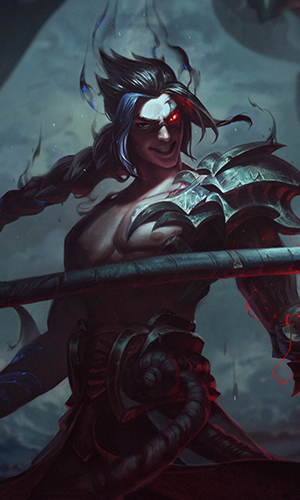 |
Rhaast
GoalsSounds menacing; almost guttural; evil use of x's and y's; unusual sound and look; same species as Aatrox
| 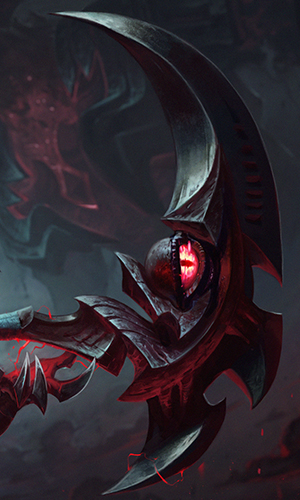 |
Ornn
GoalsSounds like a forgotten pre-Freljordian god; gruff and manly; one syllable preferably; since Forge is older than modern Freljord, sounds that are older or more exotic are okay here; not too "Norse" (some is good)
| 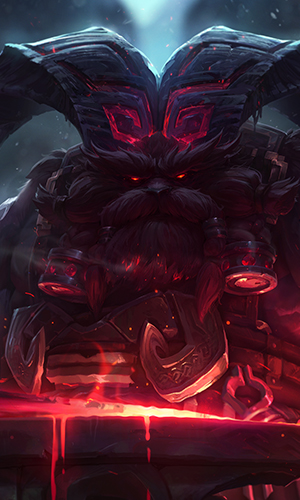 |
Kled
GoalsSounds Noxian and yet believable for a Yordle; sounds tough but almost comically so; unsophisticated, short, and easy to say; vaguely hillbilly-ish and/or orc-ish; unique to League's IP
| 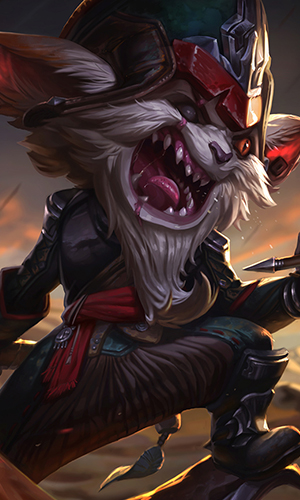 |
Skaarl
GoalsName sounds consistent with Kled and Noxus naming conventions; name sounds tough, but with a slightly sillier and nicer edge than Kled; reasonable to assume Kled gave it this name; name is short and easy to say (relates to goal 3); is copyrightable within this context; vaguely hillybilly-ish
| 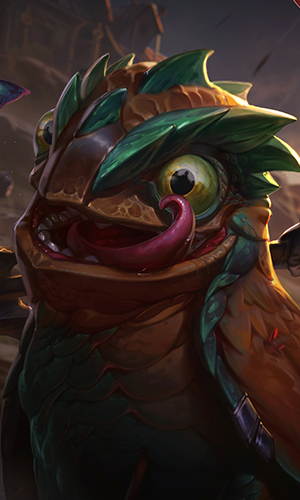 |
Zoe
GoalsEasy to say; fun—sounds like a little girl's name; Targonian (i.e. Romanesque names with Arabic influences [i.e. expectedly Byzantine])
| 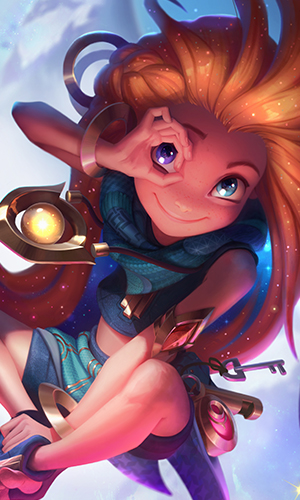 |
mcguirearniagaten.blogspot.com
Source: https://nexus.leagueoflegends.com/en-us/2017/12/naming-new-champions/

0 Response to "Funny League of Legends Names 2017"
Post a Comment